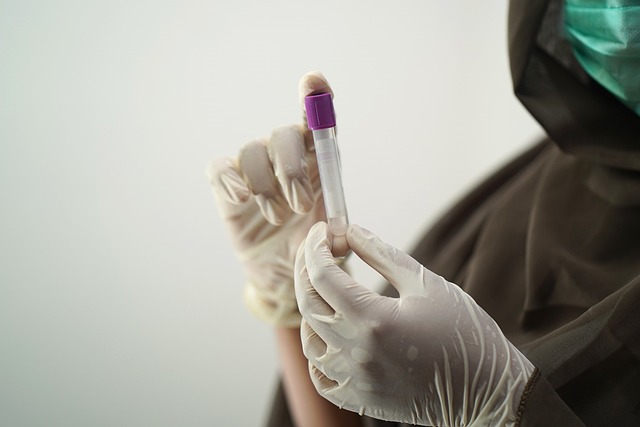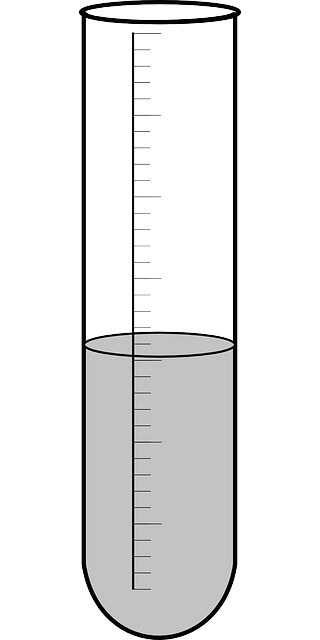The UK healthcare system underscores the importance of male hormone assessment for effective health management, specifically focusing on testosterone levels which influence various aspects of men's health including muscle mass, sperm production, sexual function, and mood regulation. Disruptions in testosterone can lead to conditions like hypogonadism. The UK offers a reliable and accessible Male Hormone Blood Test, a non-invasive method for measuring hormone levels through a simple blood sample taken from an arm or finger, analyzed by accredited laboratories. This test is crucial for the early detection and treatment of hormonal imbalances, enabling personalized healthcare strategies that can significantly enhance the quality of life for men affected by such conditions. Healthcare providers in the UK use the results of these tests to guide targeted medical interventions, including hormone replacement therapy (HRT) or lifestyle modifications, ensuring patient-specific treatment plans are implemented safely and effectively. Regular eating patterns, consistent exercise, adequate sleep, stress management, and adherence to medication schedules are recommended to maintain balanced hormone levels. The UK's approach to men's health care through the Male Hormone Blood Test is a testament to its commitment to diagnosing and managing male endocrine disorders.
Exploring the significance of testosterone in male health, this comprehensive guide illuminates the importance of testosterone level testing through UK Male Hormone Blood Tests. It demystifies the process, outlines preparation tips for optimal results, and delves into interpreting levels to inform men’s health decisions within the UK context. Understanding, preparing, and assessing are key steps in this journey towards maintaining vitality and addressing potential health issues effectively.
- Understanding Testosterone: The Role of Male Hormone Blood Tests in Health Assessment, UK
- Preparing for Your UK Male Hormone Blood Test: What to Expect and How to Optimize Results
- Interpreting Testosterone Levels: Implications for Men's Health and Available Treatments in the UK
Understanding Testosterone: The Role of Male Hormone Blood Tests in Health Assessment, UK

In the realm of male health assessment within the UK, understanding testosterone levels is paramount. Testosterone, often referred to as the primary male hormone, plays a pivotal role in various bodily functions including muscle mass maintenance, sperm production, and the regulation of sexual function and mood. Imbalances or deficiencies can lead to conditions such as hypogonadism, which may present with symptoms like decreased libido, fatigue, and reduced muscle mass. To accurately gauge testosterone levels, healthcare providers in the UK utilize male hormone blood tests. These tests offer a quantifiable measurement of testosterone in the bloodstream, providing a clear picture of an individual’s hormonal health. The process is straightforward, involving the collection of a blood sample, typically from a vein in the arm or occasionally from a finger prick. This sample is then analyzed in a laboratory accredited by the appropriate UK healthcare bodies to ensure accuracy and reliability of the results. Such assessments are crucial for early diagnosis and management of hormonal imbalances, enabling personalized treatment plans that can significantly improve quality of life for affected individuals. With the availability of reliable UK male hormone blood tests, it becomes easier for men to address health concerns related to testosterone levels and seek appropriate medical interventions.
Preparing for Your UK Male Hormone Blood Test: What to Expect and How to Optimize Results

When preparing for a UK Male Hormone Blood Test, understanding what to expect and how to optimize your results is crucial. Prior to the test, ensure that you have followed the specific guidelines provided by your healthcare provider. Typically, abstaining from sexual activity for a period before the test can provide more accurate testosterone level measurements. Additionally, avoid alcohol and non-prescription drugs, as these can affect hormone levels. On the day of the test, fasting is usually required to ensure that no recent food intake skews the results. Upon arrival at the clinic or laboratory, a healthcare professional will provide you with instructions for the blood draw process, which is straightforward and involves taking a sample from a vein, typically in your arm.
To optimize your test results, maintain consistent timing for meals and testosterone supplements if you are on any. Regular exercise, adequate sleep, and stress management can also influence your hormonal balance. It’s advisable to bring a list of medications and supplements you are currently taking, as these can impact testosterone levels. Post-test, your healthcare provider will analyze the results and discuss any health implications or treatment options tailored to your specific needs. Early detection and management of hormonal imbalances can significantly improve overall male health outcomes.
Interpreting Testosterone Levels: Implications for Men's Health and Available Treatments in the UK

Men’s health is a multifaceted concern, and testosterone levels play a pivotal role in maintaining it. In the UK, male hormone blood tests are readily available for assessing testosterone levels, which can be indicative of various health conditions. Testosterone, often colloquially referred to as the ‘male hormone,’ is essential for sexual health, muscle mass, bone density, and overall well-being. A low testosterone level, or hypogonadism, can lead to symptoms such as fatigue, decreased libido, and mood disturbances. Conversely, high levels might indicate a different set of health issues that require medical attention. Interpreting these levels accurately is crucial for tailoring appropriate treatments.
When interpreting testosterone levels in the UK, healthcare providers consider the patient’s age, lifestyle factors, and specific health concerns. For instance, levels can naturally decline with age. If a blood test conducted following the UK Male Hormone Blood Test guidelines indicates a testosterone deficiency or excess, treatment options range from hormone replacement therapy (HRT) to lifestyle modifications. HRT aims to restore hormonal balance and alleviate symptoms associated with low testosterone levels. Additionally, in some cases, dietary changes, regular exercise, and stress management can also help modulate testosterone levels. These treatments are available through the NHS or private healthcare services across the UK, ensuring men have access to the care they need for optimal health. It is imperative that any interventions be overseen by a medical professional to ensure safe and effective management of male hormone health issues.
In conclusion, testosterone level testing is a crucial health assessment tool for men in the UK. It provides valuable insights into male health, guiding personalized treatment plans through the process outlined in ‘Understanding Testosterone: The Role of Male Hormone Blood Tests in Health Assessment, UK’. Prospective patients can prepare effectively for their UK Male Hormone Blood Test by following the guidelines presented in ‘Preparing for Your UK Male Hormone Blood Test: What to Expect and How to Optimize Results’, ensuring accurate results. The interpretation of these results, as detailed in ‘Interpreting Testosterone Levels: Implications for Men’s Health and Available Treatments in the UK’, offers a comprehensive understanding of the implications of one’s testosterone levels on overall well-being and available therapeutic options. For men considering this health measurement, understanding its significance within the broader context of male health is essential, with the support of healthcare professionals across the UK.
